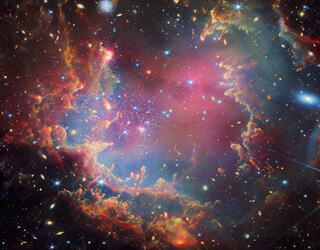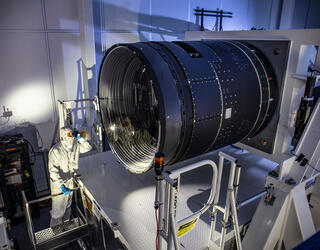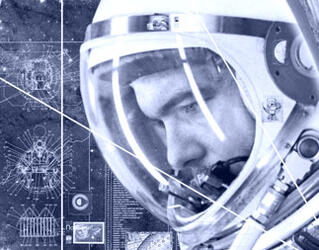Navigation tools, sales optimisation software, higher education platforms…Algorithms are not immune to ethical bias. Well before the tsunami of generative artificial intelligence, specialists on decision support systems were pondering the issue.
Article
04.22.2025
Arthur is a new submersible ROV (remotely-operated vehicle) designed for underwater archaeology. Offering unprecedented performance and versatility, it is able to explore shipwrecks for treasure and the marine life they harbour, at depths as great as 2500...
Article
04.16.2025
In "Mickey 17", the latest film by the South Korean director Bong Joon-ho, the main character is recruited as an “Expendable” as part of a mission to colonise an exoplanet. Each time he dies, his memories are reloaded into a new body. Can this...
Article
04.14.2025
Our topics
03.18.2025
Over the past few months, our planet has been ìmpacted by intense solar flare activity on the Sun. This phenomenon, which caused the polar auroras that recently lit up European skies, could also...
Article
02.06.2025
White dwarfs are the extremely dense, compact remnants of stars that have ended their lives, and are at the origin of tremendous explosions known as novae. This phenomenon (not to be confused with...
01.29.2025
Based in Namibia, the H.E.S.S. telescope array monitors the showers of particles produced when the highest-energy cosmic rays ever observed in the Universe impact the Earth's atmosphere.
01.20.2025
Astronomical observatories can yield exceptional discoveries, but they are sometimes built with little regard for the environment and local people, sparking public opposition. The sociologist and...
Article
12.04.2024
A genuine technological gem, the James Webb Space Telescope has been exploring the smallest nooks of the Universe over the last two years. From the birth of planets and the first galaxies to the...
11.15.2024
Astrochemistry, a relatively new field, focuses on exploring chemistry in interstellar spaces to uncover insights about the origins of life on Earth. This discipline has seen significant advancements...
10.16.2024
Interview with the linguist Frédéric Landragin, who recently published a short guide on interstellar communication.
Article
08.30.2024
For nearly ten years, astronomers have been trying to demonstrate the existence of a massive object thought to be orbiting in the outer reaches of the Solar System. Although the hypothesis is widely...
Slideshow
07.12.2024
It took hundreds of scientists worldwide, including several CNRS teams, to produce the world’s largest digital camera, the LSST (Legacy Survey of Space and Time), which has finally arrived in Chile....
Article
06.27.2024
On 22 June, a Chinese Long March 2C rocket launched the SVOM satellite, carrying two French-designed instruments, into orbit. The mission's goals are to investigate the mechanism of gamma-ray...
Article
06.20.2024
Alessandro Morbidelli is a specialist in the evolution and formation of planetary systems, and holds the planetary formation Chair at the Collège de France. The astrophysicist looks back on his...
06.14.2024
The “Sanctuary on the Moon” project, launched nearly ten years ago, aims to send a collection of discs containing a vast body of knowledge and material evidence of human civilisation to the Moon.
















